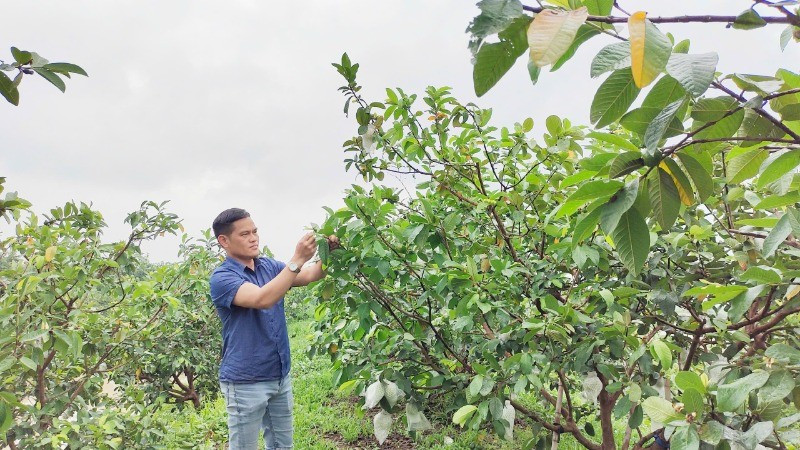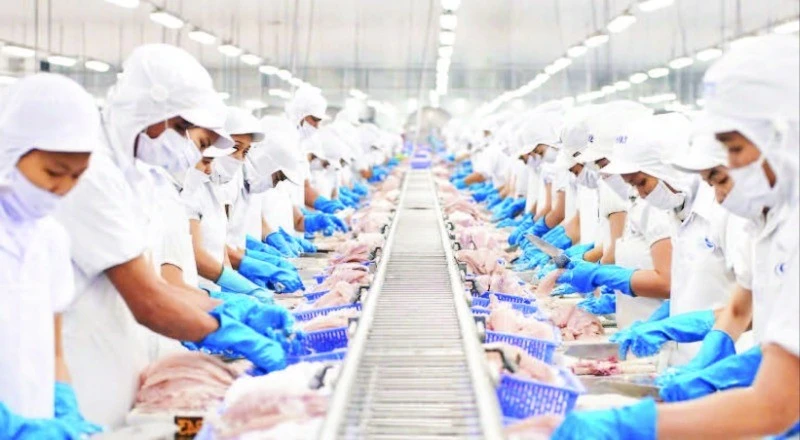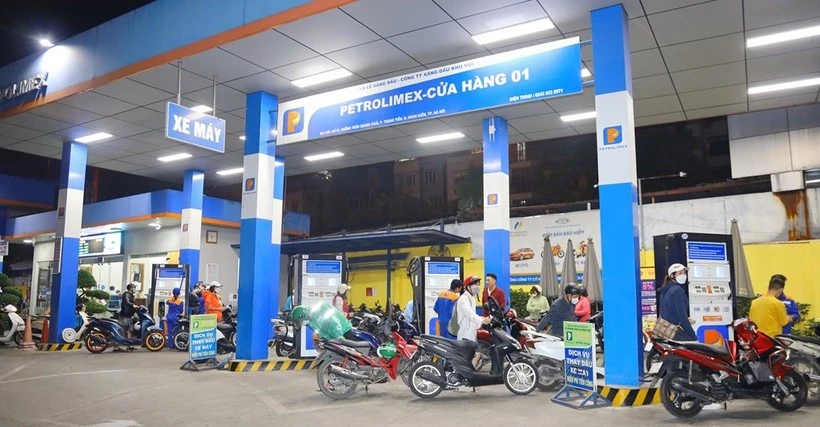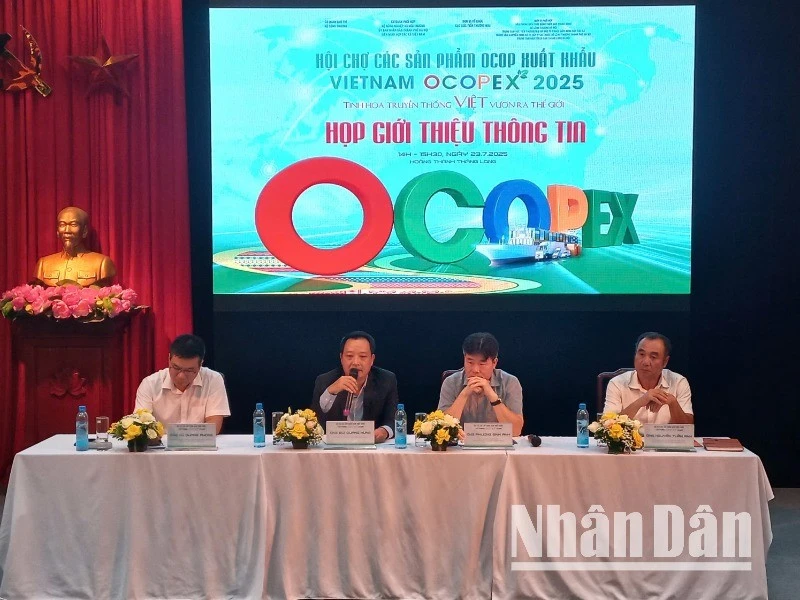The Di Trach Agricultural Service Cooperative cultivates around 40 hectares of fruit trees, of which 25 hectares are dedicated to pear-shaped guava grown in accordance with VietGAP standards and organic farming practices.
According to Nguyen Huu Quang, Director of Di Trach Agricultural Service Cooperative, to ensure high-quality produce, local farmers begin by selecting suitable fruits for protection when they are still small—about 2–3 cm in diameter—by wrapping them in plastic bags. This practice helps prevent pest infestation and reduces the need for plant protection chemicals.
“During cultivation, we primarily use organic fertilisers. If the plants become infected, we usually rely on manual methods. In cases where treatment is necessary, we prioritise biological pesticides. As a result, Di Trach guavas consistently have an attractive appearance and high quality,” said Quang.
In the past, guava trees would only bear fruit once per year. The peak harvest season fell around May to June in the lunar calendar, coinciding with the peak of many other fruits, which led to lower prices and slow sales. However, after a period of learning and experience-sharing, Di Trach’s guava farmers began applying techniques in fertilisation and pruning appropriate to each growth stage.
Thanks to their skilled hands and adaptability, Di Trach’s guava growers now harvest 2–3 crops annually. The main harvest season has shifted to the ninth lunar month, when the cool autumn wind makes the guava even crisper and sweeter, as the plant thrives in such conditions.
Starting with only seven members, the Di Trach Agricultural Service Cooperative now has 30 members. Each year, the cooperative supplies the market with about 1,000 tonnes of guava. With a farm-gate price of around 20,000 VND per kg, guava cultivation has become a stable source of income for local farmers. The average income per member is estimated at 100 million VND per year. Additionally, the cooperative creates seasonal jobs for many locals.
In 2021, Di Trach guava was officially recognised by the Ha Noi People’s Committee as a 4-star OCOP (One Commune One Product). Nguyen Huu Quang noted that this recognition has strengthened consumer confidence in the Di Trach guava brand.
Since 2021, relevant authorities have actively supported promotional efforts, helping guava growers expand their market reach. Di Trach guava is now available in many supermarkets and clean food stores throughout Ha Noi and nearby provinces and cities.
Despite these positive outcomes, Di Trach guava growers continue to face several challenges. According to local farmers, when guava trees reach about two years of age, some start showing signs of disease and eventually die. So far, no effective cure has been found. Moreover, during peak harvest seasons, guava sales sometimes slow down, leading to a backlog of produce.
At present, the Di Trach Agricultural Service Cooperative has successfully built a recognised brand for Di Trach guava. However, when selling the product in the market, imitation and counterfeit products falsely labelled as Di Trach guava still persist.
Quang has called on the authorities to assist in improving productivity and quality, as well as in developing Di Trach guava into a stronger brand. The cooperative hopes to receive technical support to treat diseased guava areas and access to disease-free seedlings for cultivation. Furthermore, there is a need for measures to protect the Di Trach guava trademark and continued promotional activities to boost sales.
According to the Ha Noi New-style Rural Development Programme Coordination Office, the 4-star OCOP certification for Di Trach guava has helped affirm its quality and strengthen the brand of this local specialty. Ha Noi currently leads the country in terms of the number of OCOP-certified products.
Since 2019, Ha Noi has evaluated and rated 3,317 OCOP products, accounting for 21.3% of the nation’s total. Among them, six products have achieved 5-star standards, 22 have 5-star potential, 1,571 have 4-star ratings, and 1,718 are rated 3-star.
Ha Noi possesses numerous advantages to effectively implement the OCOP Programme. The city is home to nearly 1,600 farms and 172 production–consumption linkage chains, along with over 1,300 active agricultural cooperatives.
In addition, Ha Noi boasts more than 1,350 traditional craft villages, accounting for 40% of such villages nationwide. Notably, over 14,000 agricultural products from Ha Noi have been assigned QR codes for traceability. The city also has 164 high-tech agricultural models that contribute to enhancing the quality, safety, and transparency of its agri-products.
















